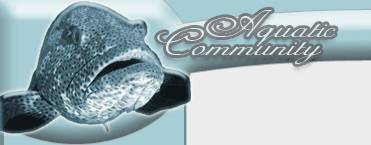Golden Retriever Health Problems

One of the worst nightmares an animal lover could ever experience is to see our belowed pet getting sick and enduring pain. The mental anguish is immeasurable, not to mention the guilt a lot of us feel for not being able to prevent such occurrence. From the moment you decide to obtain a pet, you ought to exercise the responsibilities that go with that vital decision. This duty involves ensuring that your pet receives the appropriate vaccine regularly and provide it with what it needs to remain fit and healthy such as a nutritious diet and proper exercise.
In the case of a Golden Retriever, you should already exercise some level of vigilance in choosing your puppy from the litter. Prior to the actual selection, you need to find a reputable breeder that produces healthy puppies. Avoid buying your Golden Retriever pup from casual/backyard breeder and pet shops as the health conditions of the animals being sold from these sources rarely are high enough. You should look for those individuals who breed for the love of this dog type and who can be considered experts in their knowledge about Golden Retrievers. A conscientious breeder will do its very best not to raise litters that suffer from hereditary defects.
The common health problems that afflict a Golden Retriever affect their ears and skin while the more critical ones concern the eyes, heart and the hips. Before trying any kind of treatment on your pet, consult a veterinarian for the proper procedure. Without you knowing it, you might aggravate your dog’s situation, resulting in graver consequences.
A usual Golden Retriever health problem relates to their ears. If you see your pet constantly scratching or shaking its ears, then moisture and dirt may have accumulated in those areas that need to be cleaned up. If left unattended, this could lead to a more serious case of ear infection. Discovering that your dog has fleas and ticks must not be ignored, for this could get worse and lead to skin problems. When you dog is still a puppy it must be handled with extra care because its bones are not yet fully developed. From three up to eight months is the most important growing stage.
A Golden Retriever is likely to suffer from cataracts, which is generally hereditary. It normally appears to dogs that have attained the age of nine up to eighteen months. Fortunately, at this stage the dog will not encounter any vision impairment. The more worrisome eye defects are retinal dysplasia, uveitis, progressive retinal atrophy and central progressive retinal atrophy. There may also be cases of eyelids and eyelash troubles.
A congenital heart condition that threatens the lives of many Golden Retrievers is the subvalvular aortic stenosis. This is principally a defect that prevents the natural flow of blood to the aorta flowing from the left ventricle due to a malformation in the heart valve. A cardiac evaluation must be conducted by a veterinary cardiologist to determine the gravity of the murmurs in a puppy or adult dog.
The improper formation of your Golden Retriever’s hip is referred to as hip dysplasia. The pain that your dog may experience could range from mild discomforts to severe pain that can cause crippling at an early stage.
By understanding these common ailments, you can attempt to protect your pet dog from these diseases through proper hygiene, exercise and regular check-ups with the vet.
